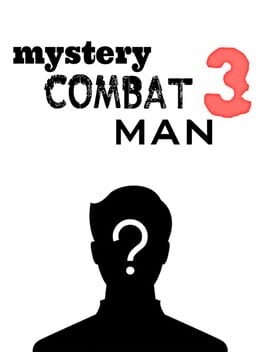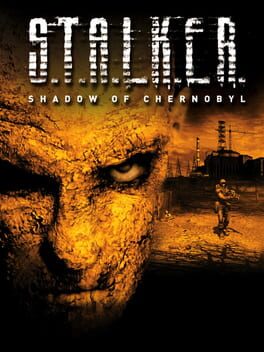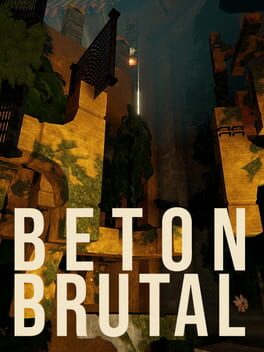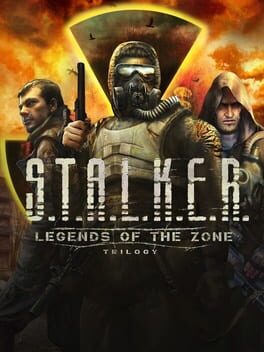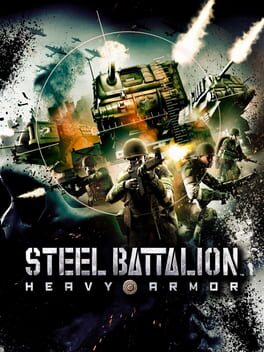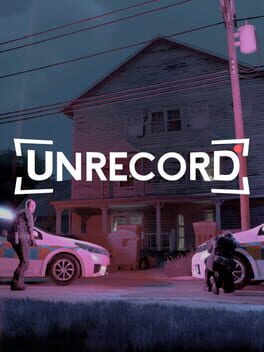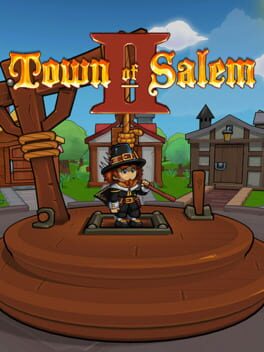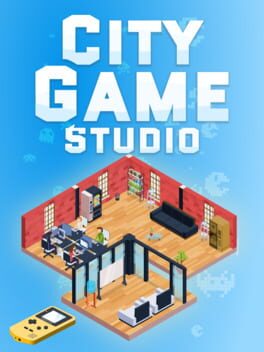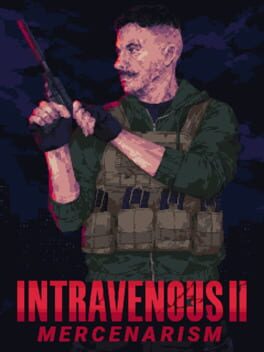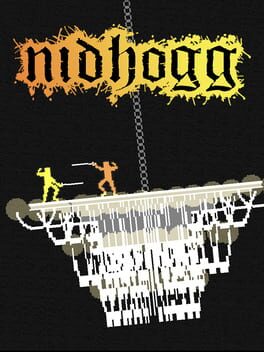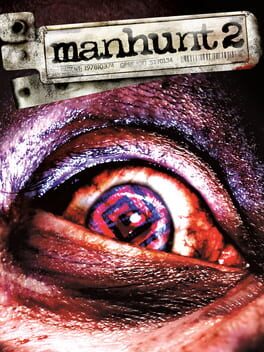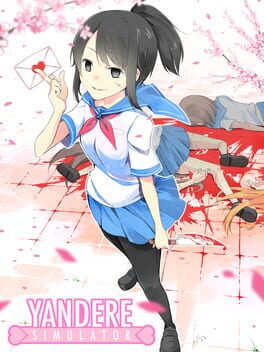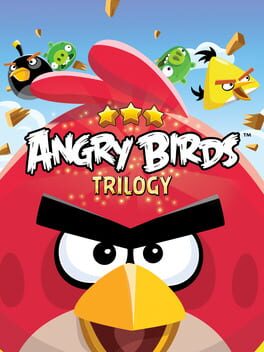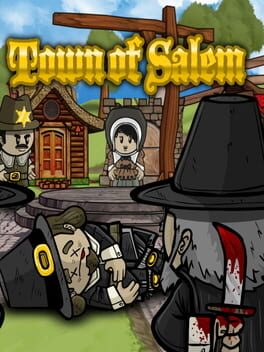Yultimona
2014
So, funny story: when I was around eleven, maybe twelve, I was at my cousin's house playing Garry's Mod on his computer. He wanted me to get off but in a very subtle way. So he challenged me. The ultimate challenge, he called it: enough Combine Elites to slow his computer down to the point where a hard reset was the only way to close the game.
Mystery Comabt Man 3 emulates this experience with a stable framerate. I kind of wish it didn't.
I mean this in the most insulting way possible: this is a time capsule. Like The Impossible Quiz, but with all of its charm and character stripped in favor of kitchen-sink design that's so "lol so goofy xDDDD" that the developer couldn't have been fucked to add level exits. Not that it would matter, anyway. Strip away everything added to be annoying, and you have a series of maps that somehow manage to rival that time I made a map in TimeSplitters that locked the entire red team in their base because my brother always picked red, and I didn't know that keys only spawned in Story mode. Except worse, because at least the worst maps we made in TimeSplitters (See: single cubes that caused rounds of Virus to last less than thirty seconds) didn't require God mode to be playable. Good lord.
I'm starting to remember why we post-millennial Zoomers like to make self-deprecating quips about the montage parody era of internet culture, and I wholeheartedly agree with them. This is below the lowest rungs of trash-tier modding. And depending on who you ask, it's the exact kind of thing that makes the scene so awesome. I can't disagree with that notion, I've done it before.
Mystery Comabt Man 3 emulates this experience with a stable framerate. I kind of wish it didn't.
I mean this in the most insulting way possible: this is a time capsule. Like The Impossible Quiz, but with all of its charm and character stripped in favor of kitchen-sink design that's so "lol so goofy xDDDD" that the developer couldn't have been fucked to add level exits. Not that it would matter, anyway. Strip away everything added to be annoying, and you have a series of maps that somehow manage to rival that time I made a map in TimeSplitters that locked the entire red team in their base because my brother always picked red, and I didn't know that keys only spawned in Story mode. Except worse, because at least the worst maps we made in TimeSplitters (See: single cubes that caused rounds of Virus to last less than thirty seconds) didn't require God mode to be playable. Good lord.
I'm starting to remember why we post-millennial Zoomers like to make self-deprecating quips about the montage parody era of internet culture, and I wholeheartedly agree with them. This is below the lowest rungs of trash-tier modding. And depending on who you ask, it's the exact kind of thing that makes the scene so awesome. I can't disagree with that notion, I've done it before.
Shadow of Chernobyl is a game that is frequently at odds with itself. If it's not impressive on the basis of its ambitions alone, then it's outright apparent that it's the result of two conflicting visions: that of a game studio eschewing its trappings to push boundaries others weren't willing to, even if the developers weren't getting paid very well, and that of a game publisher that was tired of waiting. The dichotomy between these camps sullies the experience the more you play Shadow of Chernobyl. So much of it feels so haplessly thrown together that it becomes hard to know what was kept in to make the experience feel as hopeless as it ultimately is and what just so happened to have that effect. The Ranking system, for example, is a unique concept that ties into the game's early fascination with NPC interactions. I looked at it once at the start of my playthrough, one more time out of curiosity after playing the game for ten hours, and never again. But if you scratch past these layers and try to see what the developers were trying to make behind the scenes... it still feels confused. The unfortunate reality is that, by trying to be as fresh as possible, there’s a significant chance your first attempt will end up clumsy.
The biggest problem Shadow of Chernobyl faces is that its mixture of non-linear exploration and linear set-pieces rarely coalesce. Instead, the game often feels like it’s trying to be three things at once. In one hand, it’s a game about stats and MMO-lite questing/looting for the best equipment you can get with your limited inventory space. In the other, it’s a linear shooter with a high level of difficulty that occasionally goes full-corridor and will have you quicksaving every five seconds. By the feet, it’s a sci-fi-flavored mystery that tries to pull you in on the basis of its landscapes alone. The resulting mixture is a game that expects you to explore and do side-questing to understand several of its key mechanics in its opening moments while a giant arrow in the top-left corner of the screen is telling you to do anything else. Paired with how limited exploration can be, and it quickly becomes an experience that feels more distracted than it should be.
Thankfully, there are still aspects of it that hold up. Although it’s occasionally held back by grating, repetitive sound effects, and voice lines, it’s the intoxicating atmosphere and art direction that keeps the experience from falling apart. There is a damn good reason that this is what S.T.A.L.K.E.R. has become synonymous with. From the moody, blocky grays of the bar area to the ways in which the metal roofs of a couple of warehouses split apart, everything about The Zone feels authentically oppressive. Vast and typically quiet stretches of land are hardly the oases they would be in another game, as they’re often doused in hardly bright hues. Other creative decisions, such as non-diegetic music in the bar area, cause each space to feel lived in. Pair that with the convincing behavior of AI opponents, such as roaming dogs, and it’s almost never a question of if you’re safe in an area. Despite being a game full of bombastic action, its best moments are usually its quietest and most unnerving. While these short moments last, Shadow of Chernobyl remains an engrossing experience.
While they last...
It could be said that the mystery underpinning Shadow of Chernobyl’s main narrative is undermined by its nearly interminable lack of quiet time, which causes the game to outstay its welcome should you find yourself forced to grind in order to progress to more difficult areas (as I did!). And while this is true to an extent, there are far more pressing issues holding it back. One, the quest structure (both main and secondary) rarely evolves throughout. Even at its most interesting, Shadow of Chernobyl is content to have the player kill or loot, and that’s pretty much it. But most damning of all, its characterization is borderline one-dimensional, if it's there at all. I revisited Clear Sky pretty soon after I finished my playthrough of this, and immediately, it struck me as a game with more character and confidence. There are a handful of memorable faces in Shadow of Chernobyl, but it should say a lot that the one I (and many others, apparently) associate the most with this game never leaves the first room you’re in. In twenty hours of playtime, I saw one backstory, and it was only a paragraph in length. While the grand reveals are interesting and do leave some room for interpretation, by the time I reached them, I was no longer interested in finding those answers. Unfortunately, the solid atmosphere that permeates the experience can’t stop its confused and occasionally amateurish structure from wearing you down as it progresses. If you can beat Shadow of Chernobyl in under twelve hours, it’s probably worthy of four stars. But take my advice: don’t revisit it too often.
Having finally finished Shadow of Chernobyl, I can absolutely see where the insane modding scene for this series comes from. Shadow of Chernobyl feels like the coolest roughdraft ever while it’s in your hands. No other game has had me dragging bodies full of half-functioning guns so I could afford new armor. Despite the compromises and slipshod focus that went into its creation, it has all of the markings of an all-timer. I desperately want to love it again, and I kinda do? But even at its most compelling, it’s a hard sell.
I'm just hoping the new one isn't a Shadow of its former self. (had to do it)
The biggest problem Shadow of Chernobyl faces is that its mixture of non-linear exploration and linear set-pieces rarely coalesce. Instead, the game often feels like it’s trying to be three things at once. In one hand, it’s a game about stats and MMO-lite questing/looting for the best equipment you can get with your limited inventory space. In the other, it’s a linear shooter with a high level of difficulty that occasionally goes full-corridor and will have you quicksaving every five seconds. By the feet, it’s a sci-fi-flavored mystery that tries to pull you in on the basis of its landscapes alone. The resulting mixture is a game that expects you to explore and do side-questing to understand several of its key mechanics in its opening moments while a giant arrow in the top-left corner of the screen is telling you to do anything else. Paired with how limited exploration can be, and it quickly becomes an experience that feels more distracted than it should be.
Thankfully, there are still aspects of it that hold up. Although it’s occasionally held back by grating, repetitive sound effects, and voice lines, it’s the intoxicating atmosphere and art direction that keeps the experience from falling apart. There is a damn good reason that this is what S.T.A.L.K.E.R. has become synonymous with. From the moody, blocky grays of the bar area to the ways in which the metal roofs of a couple of warehouses split apart, everything about The Zone feels authentically oppressive. Vast and typically quiet stretches of land are hardly the oases they would be in another game, as they’re often doused in hardly bright hues. Other creative decisions, such as non-diegetic music in the bar area, cause each space to feel lived in. Pair that with the convincing behavior of AI opponents, such as roaming dogs, and it’s almost never a question of if you’re safe in an area. Despite being a game full of bombastic action, its best moments are usually its quietest and most unnerving. While these short moments last, Shadow of Chernobyl remains an engrossing experience.
While they last...
It could be said that the mystery underpinning Shadow of Chernobyl’s main narrative is undermined by its nearly interminable lack of quiet time, which causes the game to outstay its welcome should you find yourself forced to grind in order to progress to more difficult areas (as I did!). And while this is true to an extent, there are far more pressing issues holding it back. One, the quest structure (both main and secondary) rarely evolves throughout. Even at its most interesting, Shadow of Chernobyl is content to have the player kill or loot, and that’s pretty much it. But most damning of all, its characterization is borderline one-dimensional, if it's there at all. I revisited Clear Sky pretty soon after I finished my playthrough of this, and immediately, it struck me as a game with more character and confidence. There are a handful of memorable faces in Shadow of Chernobyl, but it should say a lot that the one I (and many others, apparently) associate the most with this game never leaves the first room you’re in. In twenty hours of playtime, I saw one backstory, and it was only a paragraph in length. While the grand reveals are interesting and do leave some room for interpretation, by the time I reached them, I was no longer interested in finding those answers. Unfortunately, the solid atmosphere that permeates the experience can’t stop its confused and occasionally amateurish structure from wearing you down as it progresses. If you can beat Shadow of Chernobyl in under twelve hours, it’s probably worthy of four stars. But take my advice: don’t revisit it too often.
Having finally finished Shadow of Chernobyl, I can absolutely see where the insane modding scene for this series comes from. Shadow of Chernobyl feels like the coolest roughdraft ever while it’s in your hands. No other game has had me dragging bodies full of half-functioning guns so I could afford new armor. Despite the compromises and slipshod focus that went into its creation, it has all of the markings of an all-timer. I desperately want to love it again, and I kinda do? But even at its most compelling, it’s a hard sell.
I'm just hoping the new one isn't a Shadow of its former self. (had to do it)
2023
Beton Brtual is so fucking tedious that even the method of save scumming I used to make it a palatable experience was dull. When I first started playing it, its blend of precision platforming, tightly designed landscapes, and brutalist architecture-inspired art style wowed me. And then I hit a brick wall. And I kept hitting it. And suddenly, the game lost its zing. It became monotonous, a chore to sit through even at the peak of its vertigo-inducing, pants-shitting intensity. I felt I had an obligation to complete it, though; after all, I gave it four stars! In the immortal words of Kent Mansely himself, "This sort of thing is why it's so important to chew your food."
Fundamentally, my biggest issue with Beton Brutal is that it's convinced, no, insistent that forgiving the player for their mistakes is the wrong thing to do. In smaller spaces where the tension in each jump comes organically and doesn't feel contrived in the slightest, it's right. Those four stars I gave it came before I was faced with the wall spike section or the ice area. Even if its challenge remained organic throughout, though, I doubt it would have remained compelling. Without the inch that a proper saving system might give you, the emotional agony of taking a plunge no longer hits as powerful and just becomes dulling. The rewarding sense of discovery I mentioned in that old review only registers as long as the game manages to feel fresh rather than forcing you into the most rote, mechanical playstyle imaginable in the name of being "hardcore." I'm sorry, that's not "hardcore." I do, however, have a more apt phrase in my vocabulary for that: "self-indulgent and boring."
By the time I managed to complete Beton Brutal, it failed to convince me that games can be made without checkpoints. In fact, it persuaded me of the complete opposite. Checkpoints are not inherently a bad thing, and if you're looking to make your game feel intense and nerve-wracking, you can still integrate them into your game and give your players the same effect. Have them be a reward, or randomized, or hidden. What you do by removing any semblance of a saving system is, ironically, make all forms of progression feel stilted and unremarkable. Given that Beton Brutal has no narrative to rely on or any evident lore, that sense of mundanity feels as though it couldn't have been more than a side-effect. Embrace the gimmicky nature of it all, embrace save scumming! As Backloggd user Momoka eloquently puts in their review for the GameCube remake of Resident Evil, you can have a game that isn't traditionally fun and let the people playing your game save. If you force me to save my game every time I need to take a break, or every time I force the game closed in a particular way, that just feels like the pettiest form of punishment. With nothing to really justify it other than the developer insisting on it, I feel forced to reduce my evaluation of Beton Brutal to a scale that this developer is keenly aware of: spiteful minimalism.
I want to like Beton Brutal, but throughout the ten hours I put into it, it rarely let me. If uninviting games are your bread and butter, I suppose you'll chalk up all of the issues I have with it as me just being bad at the game. I can't say you're wrong. But I can't say you're right, either. You shouldn't need to be "good" at a game to enjoy it. If failing at games is part of their charm, then the least you can do with an interactive medium is make that failure engaging, insightful, or meditative. I seldom had that experience with Beton Brutal, so I can't, in good conscience, pretend that my lack of proficiency has much to do with it.
Fundamentally, my biggest issue with Beton Brutal is that it's convinced, no, insistent that forgiving the player for their mistakes is the wrong thing to do. In smaller spaces where the tension in each jump comes organically and doesn't feel contrived in the slightest, it's right. Those four stars I gave it came before I was faced with the wall spike section or the ice area. Even if its challenge remained organic throughout, though, I doubt it would have remained compelling. Without the inch that a proper saving system might give you, the emotional agony of taking a plunge no longer hits as powerful and just becomes dulling. The rewarding sense of discovery I mentioned in that old review only registers as long as the game manages to feel fresh rather than forcing you into the most rote, mechanical playstyle imaginable in the name of being "hardcore." I'm sorry, that's not "hardcore." I do, however, have a more apt phrase in my vocabulary for that: "self-indulgent and boring."
By the time I managed to complete Beton Brutal, it failed to convince me that games can be made without checkpoints. In fact, it persuaded me of the complete opposite. Checkpoints are not inherently a bad thing, and if you're looking to make your game feel intense and nerve-wracking, you can still integrate them into your game and give your players the same effect. Have them be a reward, or randomized, or hidden. What you do by removing any semblance of a saving system is, ironically, make all forms of progression feel stilted and unremarkable. Given that Beton Brutal has no narrative to rely on or any evident lore, that sense of mundanity feels as though it couldn't have been more than a side-effect. Embrace the gimmicky nature of it all, embrace save scumming! As Backloggd user Momoka eloquently puts in their review for the GameCube remake of Resident Evil, you can have a game that isn't traditionally fun and let the people playing your game save. If you force me to save my game every time I need to take a break, or every time I force the game closed in a particular way, that just feels like the pettiest form of punishment. With nothing to really justify it other than the developer insisting on it, I feel forced to reduce my evaluation of Beton Brutal to a scale that this developer is keenly aware of: spiteful minimalism.
I want to like Beton Brutal, but throughout the ten hours I put into it, it rarely let me. If uninviting games are your bread and butter, I suppose you'll chalk up all of the issues I have with it as me just being bad at the game. I can't say you're wrong. But I can't say you're right, either. You shouldn't need to be "good" at a game to enjoy it. If failing at games is part of their charm, then the least you can do with an interactive medium is make that failure engaging, insightful, or meditative. I seldom had that experience with Beton Brutal, so I can't, in good conscience, pretend that my lack of proficiency has much to do with it.
I think it's pretty easy to take for granted how much official controller support can add to a game. I'll give you an example: Rollercoaster Tycoon 3 on the Steam Deck is an unmitigated nightmare that, at best, is barely playable unless you have a mouse and keyboard plugged in. But the version for the Nintendo Switch works surprisingly well. Further case and point: anyone who has ever tried rebinding the buttons on a controller so they could play any of the three S.T.A.L.K.E.R. games developed and released between 2007-2009 probably came to the same realization that the developers of System Shock 2's canceled Dreamcast port did: there just aren't enough buttons on any controller for this shit, man. Unless you want to sacrifice your ability to lean around corners, turn on your flashlight, change the firing mode of your weapon, or have quick access to healing items, trying to play the PC versions of S.T.A.L.K.E.R. with a controller is inadvisable until further notice.
Like Rollercoaster Tycoon 3's Switch port, what drew me to the Legends of the Zone Trilogy bundle currently on sale for the Xbox and (surprisingly) PlayStation isn't that I had never touched these games before, but I was genuinely curious to see how a franchise that has never had official controller support before would handle the task of running on console hardware. And surprisingly, it works. It works about as well as you would expect it to, anyway. It is still a little finicky in some regards: sensitivity between aiming regularly and aiming down sights differs to a distracting degree, the weapon wheel doesn't pause or slow the game while you're using it, and navigating the inventory without a cursor slows things down, which isn't aided by the fact that using the inventory, too, does not slow or pause the game for you. Some of that clunkiness aside, though, these control fine and are perfectly adequate ways to experience the vanilla versions of these games if you've either never played them before or simply want a reason to play them again. They've added achievements to all three games, as well, which is always a nice touch. Multiplayer modes aren't present, but it should be common knowledge by now that multiplayer doesn't tend to carry over when an older game gets re-released unless it was a notable part of the package (and here, it was not).
This is sort of reminiscent of that time they ported Half-Life 2, FEAR, Far Cry, and Doom 3 to seventh-gen systems to accommodate for the fact that neither the PS2 nor original Xbox could manage stable/struggled to manage stable ports of either, except they've done it two console generations later. I don't really mind that though; I find this sort of re-release nostalgic. On the subject of this being released on last-gen hardware rather than current-gen systems, perhaps they didn't have the resources for that? That distinction does make this feel a bit lazier than it should to prying eyes, but on a PlayStation 5, it emulates just fine, looks great in 4K, and feels fine enough with a DualSense. I am a bit bummed that they didn't consider porting this to the Switch, but I can see where technical barriers and monetary incentives would have prevented such a port from happening. Oh well, maybe next time.
There are a couple of interesting differences I've noticed so far:
- The Energy Drinks you'll find in-game now have the branding/product placement that they apparently did in the original European releases.
- They've done their due diligence, and the Chernobyl in Shadow of Chernobyl is now spelled in Ukrainian fashion, with an O instead of an E. They've also gone ahead and done this for S.T.A.L.K.E.R. 2, so it's not too surprising, but what is is that they've gone ahead and edited the original menu images to accommodate for this change.
- As has been common with these re-releases since Whoopi Goldberg introduced the Looney Tunes (probably), there's a disclaimer in here about these games being historical artifacts (no pun intended). While you could point to something like the use of the R slur in these games for that disclaimer, the most likely explanation for what they're referring to is that these games have never had a particularly positive outlook on the Ukranian military. Preeeeetty bad timing for that, I'd say.
ETA: Easily the roughest bit of transition from PC to Consoles is that I don't think any of these ports allow you to quicksave. Given that S.T.A.L.K.E.R. has always been firmly in the camp of "quicksave every five minutes in case you die instantly", this means that your manual saves will fill up quickly. There's also the fact that these being straightforward ports means that there are no quickslots for any game that isn't Call of Pripyat. Prepare to be sorting through that inventory a lot just to use one energy drink! That being said, I stand by my assessment thus far: these are accessible ports that mostly work out of the box. If that's what you're looking for, it's forty bucks well spent.
ETA2: Lowering my score for this by a star. Everything I said is true, but the faithfulness of these ports also extends to their notable technical shortcomings, including crashes, bugs that have never officially been patched, and inconsistent spawning/despawning. These games are still playable and fine, evidenced by the fact that I just spent 22 hours in Shadow of Chernobyl with very few issues. But if you're coming in expecting these ports to have been polished for consoles beyond their controls and presentation, they're somewhat disappointing, although the likely explanation is that there might not have been much to work with.
Like Rollercoaster Tycoon 3's Switch port, what drew me to the Legends of the Zone Trilogy bundle currently on sale for the Xbox and (surprisingly) PlayStation isn't that I had never touched these games before, but I was genuinely curious to see how a franchise that has never had official controller support before would handle the task of running on console hardware. And surprisingly, it works. It works about as well as you would expect it to, anyway. It is still a little finicky in some regards: sensitivity between aiming regularly and aiming down sights differs to a distracting degree, the weapon wheel doesn't pause or slow the game while you're using it, and navigating the inventory without a cursor slows things down, which isn't aided by the fact that using the inventory, too, does not slow or pause the game for you. Some of that clunkiness aside, though, these control fine and are perfectly adequate ways to experience the vanilla versions of these games if you've either never played them before or simply want a reason to play them again. They've added achievements to all three games, as well, which is always a nice touch. Multiplayer modes aren't present, but it should be common knowledge by now that multiplayer doesn't tend to carry over when an older game gets re-released unless it was a notable part of the package (and here, it was not).
This is sort of reminiscent of that time they ported Half-Life 2, FEAR, Far Cry, and Doom 3 to seventh-gen systems to accommodate for the fact that neither the PS2 nor original Xbox could manage stable/struggled to manage stable ports of either, except they've done it two console generations later. I don't really mind that though; I find this sort of re-release nostalgic. On the subject of this being released on last-gen hardware rather than current-gen systems, perhaps they didn't have the resources for that? That distinction does make this feel a bit lazier than it should to prying eyes, but on a PlayStation 5, it emulates just fine, looks great in 4K, and feels fine enough with a DualSense. I am a bit bummed that they didn't consider porting this to the Switch, but I can see where technical barriers and monetary incentives would have prevented such a port from happening. Oh well, maybe next time.
There are a couple of interesting differences I've noticed so far:
- The Energy Drinks you'll find in-game now have the branding/product placement that they apparently did in the original European releases.
- They've done their due diligence, and the Chernobyl in Shadow of Chernobyl is now spelled in Ukrainian fashion, with an O instead of an E. They've also gone ahead and done this for S.T.A.L.K.E.R. 2, so it's not too surprising, but what is is that they've gone ahead and edited the original menu images to accommodate for this change.
- As has been common with these re-releases since Whoopi Goldberg introduced the Looney Tunes (probably), there's a disclaimer in here about these games being historical artifacts (no pun intended). While you could point to something like the use of the R slur in these games for that disclaimer, the most likely explanation for what they're referring to is that these games have never had a particularly positive outlook on the Ukranian military. Preeeeetty bad timing for that, I'd say.
ETA: Easily the roughest bit of transition from PC to Consoles is that I don't think any of these ports allow you to quicksave. Given that S.T.A.L.K.E.R. has always been firmly in the camp of "quicksave every five minutes in case you die instantly", this means that your manual saves will fill up quickly. There's also the fact that these being straightforward ports means that there are no quickslots for any game that isn't Call of Pripyat. Prepare to be sorting through that inventory a lot just to use one energy drink! That being said, I stand by my assessment thus far: these are accessible ports that mostly work out of the box. If that's what you're looking for, it's forty bucks well spent.
ETA2: Lowering my score for this by a star. Everything I said is true, but the faithfulness of these ports also extends to their notable technical shortcomings, including crashes, bugs that have never officially been patched, and inconsistent spawning/despawning. These games are still playable and fine, evidenced by the fact that I just spent 22 hours in Shadow of Chernobyl with very few issues. But if you're coming in expecting these ports to have been polished for consoles beyond their controls and presentation, they're somewhat disappointing, although the likely explanation is that there might not have been much to work with.
The following is an excerpt from my list Errant Thoughts on Games I've Never Played Before/Haven't Played Too Much
Steel Battalion: Heavy Armor is perhaps the most fascinating game to have ever used motion controls, and it's also probably the most frustrating. I genuinely wish this were good. If you want a good portrait of how much the original Steel Battalion's core conceit bottlenecked it, its Backloggd page has it on at least seventy lists, but only six people have ever written reviews for it (at the time of writing). This might have to do with the fact that its current price range is currently sitting just above three hundred dollars USD. As Backloggd user Lapbunny helpfully points out, its lack of accessibility and uniqueness has made it practically a mainstay of many expos and conventions, so it's likely that there is an audience for it that just has never been able to own a copy of the game and its controller, themselves.
All this is to say that Heavy Armor was too early for the party. For all intents and purposes, this is a VR game that was made for technology great at emulating mobile games but was mixed with just about anything else. And I have to say, VR is the way to go for a game like this. The peripheral era of gaming is over, long dead, there are piss stains on its tombstone, and game companies are wise to that fact. The best thing that can be done now is to emulate what those peripherals could do without wasting space, and I don't think there's any other format more suited to that than VR.
About the saddest thing to be gleaned from the failure of a game like Heavy Armor is that, regardless of whether or not it can feasibly done now, there must not be any motivation for anyone with a budget to try it again. Steel Battalion isn't a franchise, and it probably wouldn't sell like one, either. If your main goal is to move units so you can keep making games, it's not something you would take another shot at. But somewhere inside me, I have hope. The indie scene is where a game like Steel Battalion will flourish again, as it has done for Guitar Hero quite recently. Godspeed, indie developers, godspeed.
Steel Battalion: Heavy Armor is perhaps the most fascinating game to have ever used motion controls, and it's also probably the most frustrating. I genuinely wish this were good. If you want a good portrait of how much the original Steel Battalion's core conceit bottlenecked it, its Backloggd page has it on at least seventy lists, but only six people have ever written reviews for it (at the time of writing). This might have to do with the fact that its current price range is currently sitting just above three hundred dollars USD. As Backloggd user Lapbunny helpfully points out, its lack of accessibility and uniqueness has made it practically a mainstay of many expos and conventions, so it's likely that there is an audience for it that just has never been able to own a copy of the game and its controller, themselves.
All this is to say that Heavy Armor was too early for the party. For all intents and purposes, this is a VR game that was made for technology great at emulating mobile games but was mixed with just about anything else. And I have to say, VR is the way to go for a game like this. The peripheral era of gaming is over, long dead, there are piss stains on its tombstone, and game companies are wise to that fact. The best thing that can be done now is to emulate what those peripherals could do without wasting space, and I don't think there's any other format more suited to that than VR.
About the saddest thing to be gleaned from the failure of a game like Heavy Armor is that, regardless of whether or not it can feasibly done now, there must not be any motivation for anyone with a budget to try it again. Steel Battalion isn't a franchise, and it probably wouldn't sell like one, either. If your main goal is to move units so you can keep making games, it's not something you would take another shot at. But somewhere inside me, I have hope. The indie scene is where a game like Steel Battalion will flourish again, as it has done for Guitar Hero quite recently. Godspeed, indie developers, godspeed.
TBD
"As a French studio addressing a global audience, the game does not engage in any foreign policy and is not inspired by any real-life events."
Oh no.
What's the point, then? If you're going to be telling a story through the perspective of a bodycam, should the medium not be the message?
I'm willing to give these developers the benefit of the doubt, maybe there will be more to this than that. But as it stands, that kind of statement attached to a game with a premise like this is only slightly less on the nose than EA or Ubisoft making a game adaptation of Bumfights with hyper-realistic graphics where you play as both the cameraman and aggressor and then claiming that the only bit of reality mirrored in it is that the homeless exist.
Oh no.
What's the point, then? If you're going to be telling a story through the perspective of a bodycam, should the medium not be the message?
I'm willing to give these developers the benefit of the doubt, maybe there will be more to this than that. But as it stands, that kind of statement attached to a game with a premise like this is only slightly less on the nose than EA or Ubisoft making a game adaptation of Bumfights with hyper-realistic graphics where you play as both the cameraman and aggressor and then claiming that the only bit of reality mirrored in it is that the homeless exist.
2023
Town of Salem 2 is a remarkable improvement over its predecessor in terms of presentation and mechanical depth. Everything I like about the first game is here, and better.
But anyone who is giving this four stars is not contemplating what the New User Experience is like. There are no tutorials, and the last time I played, all I was really given was a series of YouTube videos that a) were questionably outsourced to a streamer, and b) did not adequately explain any of the question marks I had. There's an exhaustive list of all of the roles you can play and what their mechanics are, and I'm really stressing the exhaust part of that word there. If you want to sit and read it all, you can, but it's hardly an intuitive solution. If you ask for help in any of the lobbies you play, people just ignore you. It's like the first time you play a new board game with your family if the rulebook was written with written in the style of a foreword by an adolescent individual who expects you to already be familiar with the game, and everyone at the table knows what the game is but you and they deliberately ignore any questions you have about the game itself. Fuck it, it's just Mao at that point. I think that's how it's spelled? You know, Mao. That card game where the one rule is that you're not allowed to tell other people the rules, the one that assholes practically hold dominion over. I'm sure you can learn to play Mao, and for some, that's rewarding. But, from my perspective, I prefer games that are welcoming. I want to both be challenged, and have fun. Fucking crazy, right? Nobody has ever thought of that before!
But anyone who is giving this four stars is not contemplating what the New User Experience is like. There are no tutorials, and the last time I played, all I was really given was a series of YouTube videos that a) were questionably outsourced to a streamer, and b) did not adequately explain any of the question marks I had. There's an exhaustive list of all of the roles you can play and what their mechanics are, and I'm really stressing the exhaust part of that word there. If you want to sit and read it all, you can, but it's hardly an intuitive solution. If you ask for help in any of the lobbies you play, people just ignore you. It's like the first time you play a new board game with your family if the rulebook was written with written in the style of a foreword by an adolescent individual who expects you to already be familiar with the game, and everyone at the table knows what the game is but you and they deliberately ignore any questions you have about the game itself. Fuck it, it's just Mao at that point. I think that's how it's spelled? You know, Mao. That card game where the one rule is that you're not allowed to tell other people the rules, the one that assholes practically hold dominion over. I'm sure you can learn to play Mao, and for some, that's rewarding. But, from my perspective, I prefer games that are welcoming. I want to both be challenged, and have fun. Fucking crazy, right? Nobody has ever thought of that before!
I have put maybe an hour or two into Silent Hill 2, and I know it's a game that I need to finish at some point. I know the great twist, I've had that spoiled for me god knows how many times. I honestly put it into the same camp that I have movies like Alien in: even if there's something in there that surprises me, having the big moments ripped off like a band-aid purely through pop culture osmosis dampers my curiosity somewhat. All of this is to say, while you may not personally be excited for new Silent Hill games, I'm just curious to see something new. Since I was only really around for P.T. once that was spoiled for me, too, I'm not counting it—which leaves me with the newly released The Short Message.
I did not get the hate that this got over its leaks, and having finally played it, I still don't. Having seen those leaks, I actually have more of an appreciation for this; I know now that this was pretty cohesive in its themes and intention when it needed it to be and never deviated from that. I don't mind a lack of subtlety, as long as the bluntness of what you're working on is there for a good reason, and I found the reasoning for it here to be acceptable. It's laser-focused on what it wants and needs to say from beginning to end, and this focus is echoed throughout the spaces you explore. Although I can see someone being a little irritated that this is linear to the point where doors don't unlock unless you read certain notes, most of those notes serve the story and not the lore. There are notes that serve the lore, but they all feed you the right amount of information while giving you space to think. What impressed me on an immediate level were the cinematics. I genuinely can't tell if they were live-action or rendered, although I know that they were likely rendered. It's uncanny as hell, but it's equally impressive. What impressed me throughout, however, is how well this serves as a mood piece. Each and every location, whether it was important or minor, made me feel something. This is more of a vibes game than something substantive or scary, and while that might be disappointing if you're going in expecting serious scares, it kept me hooked. One concern I do have, if this is the playable teaser many are making it out to be, is that the only area where I noticed evident performance issues was when I was near fog. If the new Silent Hill games are all going to lack the fog or run like shit because of it, we might be in for a doozy. But regardless of that one scene, the rest of this was pretty solid! ...for the most part.
Yeah, those chase scenes, man. I'm a little biased because I already don't like chase scenes, but something about them here felt either like filler or downright infuriating to deal with. If it weren't for the last chase sequence, my rating for this would absolutely be three-and-a-half stars because the vibes were just that immaculate for me. But no, god, no. I don't know if I ever want to go through that again. Put it this way: the game doesn't make a big deal about which rooms you go into because of its linear trajectory until the final chase sequence, where it expects you to remember the layout of the map like the back of your hand while elements of it feel completely different. It expects you to find five photographs in this mess without giving you a map or checkpoints. At a certain point, the stress I was intended to feel gave way to frustration. The only reason I didn't stop playing there was because I wanted to see the ending. That was it. The ending was nice, and there was a cute little tune that played over the credits (way more people worked on this than any other free game I've ever played), but I don't think that forgives it. It was that bad. At least the creature design was cool, though—although I found it to be scarier in the leaked concept art than I did in the final product. Consequences of having that kind of stuff leak, I guess. Whoops! Feel bad for the developers on that front, because I'm probably not alone in that.
What I liked about this, I really liked. If a new Silent Hill game is made from this mold, I wouldn't mind, actually. The Silent Hill 2 remake being a horror game that needs to have a trailer dedicated to its combat should say something about how skeptical I am of that, but I might also check it out when it's on sale. If this and that trailer is Konami's way of getting people back on the Silent Hill hype train... I mean, I wouldn't call this embarrassing. This was cool. But, 7/10.
I did not get the hate that this got over its leaks, and having finally played it, I still don't. Having seen those leaks, I actually have more of an appreciation for this; I know now that this was pretty cohesive in its themes and intention when it needed it to be and never deviated from that. I don't mind a lack of subtlety, as long as the bluntness of what you're working on is there for a good reason, and I found the reasoning for it here to be acceptable. It's laser-focused on what it wants and needs to say from beginning to end, and this focus is echoed throughout the spaces you explore. Although I can see someone being a little irritated that this is linear to the point where doors don't unlock unless you read certain notes, most of those notes serve the story and not the lore. There are notes that serve the lore, but they all feed you the right amount of information while giving you space to think. What impressed me on an immediate level were the cinematics. I genuinely can't tell if they were live-action or rendered, although I know that they were likely rendered. It's uncanny as hell, but it's equally impressive. What impressed me throughout, however, is how well this serves as a mood piece. Each and every location, whether it was important or minor, made me feel something. This is more of a vibes game than something substantive or scary, and while that might be disappointing if you're going in expecting serious scares, it kept me hooked. One concern I do have, if this is the playable teaser many are making it out to be, is that the only area where I noticed evident performance issues was when I was near fog. If the new Silent Hill games are all going to lack the fog or run like shit because of it, we might be in for a doozy. But regardless of that one scene, the rest of this was pretty solid! ...for the most part.
Yeah, those chase scenes, man. I'm a little biased because I already don't like chase scenes, but something about them here felt either like filler or downright infuriating to deal with. If it weren't for the last chase sequence, my rating for this would absolutely be three-and-a-half stars because the vibes were just that immaculate for me. But no, god, no. I don't know if I ever want to go through that again. Put it this way: the game doesn't make a big deal about which rooms you go into because of its linear trajectory until the final chase sequence, where it expects you to remember the layout of the map like the back of your hand while elements of it feel completely different. It expects you to find five photographs in this mess without giving you a map or checkpoints. At a certain point, the stress I was intended to feel gave way to frustration. The only reason I didn't stop playing there was because I wanted to see the ending. That was it. The ending was nice, and there was a cute little tune that played over the credits (way more people worked on this than any other free game I've ever played), but I don't think that forgives it. It was that bad. At least the creature design was cool, though—although I found it to be scarier in the leaked concept art than I did in the final product. Consequences of having that kind of stuff leak, I guess. Whoops! Feel bad for the developers on that front, because I'm probably not alone in that.
What I liked about this, I really liked. If a new Silent Hill game is made from this mold, I wouldn't mind, actually. The Silent Hill 2 remake being a horror game that needs to have a trailer dedicated to its combat should say something about how skeptical I am of that, but I might also check it out when it's on sale. If this and that trailer is Konami's way of getting people back on the Silent Hill hype train... I mean, I wouldn't call this embarrassing. This was cool. But, 7/10.
2019
You can throw shade at its developer for his edgy proclivities all you want to, but the developer of Game Dev Studio tactfully understands the core pillar of this sub-genre with flying colors. Believable imagination, as I'll call it, is the act of using terms that veer into vague territory but are just descriptive enough for you to read them with your own interpretation naturally. Having played many of these games, there's a bit of a pendulum swing; either you lack that believable imagination, or you're trying too hard to force it. On the furthest side left, you have games like Moviehouse that are so reliant on you projecting your imagination onto it that the lack of detail isn't endearing—it's a chore. Then you get into territory with the likes of GamersGoMakers and Mad Games Tycoon, which are far more involved affairs but ultimately push too much onto the player. Game Dev Studio is one of the rare games I've played that inch ever so closely to the center of this spectrum, right alongside Game Dev Tycoon.
What interested me in City Game Studio was that I've heard through the grapevine that it's like a more detailed version of Game Dev Tycoon. I might be ashamed of this on some level, but I have a track record of holding a vested interest in these things. I can shit on GamersGoMakers all day for the follies of its overambition and just strange design choices in general, but I cannot deny that I have poured tens (if not hundreds) of hours into playing around with its sandbox, warts and all. To give you a portrait of how much I revere the framework that game was built on, my ideal game in this subgenre is just a version of Studio with the in-depth review mechanic, yearly award mechanic, and licensed games mechanic from GamersGoMakers all lifted and iterated on. Knowing that this might be a more polished version of that formula, I dove in head first.
...this might be farther right on the spectrum than GamersGoMakers is.
Let me start off by saying that the presentation here is solid. Everything looks clean, simplistic, and nice. The UI is functional and easy to read. On the surface, this is a reasonably solid game in this sub-genre. And then you look at the genres they added, and a part of that hope sinks. You have your traditional entries like RPG, and Action, and Strategy. And I'll give this game props; outside of a modded version of Studio, this is the only game I know of in this sub-genre to feature eroge as a topic. Alongside those traditional tidbits are Interactive Fiction and Visual Novel. I'm sure that, with enough playtime in, you could work out what differentiates the two. But that's a problem and in of itself: you shouldn't have to do that. This sits alongside other baffling entries, like "Mystery-like," "Submarine," "Open world," "HTA-like," and "Infiltration." I could go on. I have a hunch that part of the problem here is poor translation (at least, it certainly gives off those vibes), but mostly, a lot of these just feel... I don't know, unnecessary? Let me tell you what the difference between "Strategy" and "Turn-based" is: there isn't really one. GamersGoMakers had the perfect solution to this. Vague terms like "Strategy" and "Action" aren't genres but categories. I still think it's an imperfect solution, as it does make the feeling of seeing your on-screen developer work seem somewhat arbitrary. But it's a sight better than pretending that birds of a feather share fundamental differences with each other.
The feeling I get from City Game Studio is that its heart is very much in the right place, but it needs some revision. Another example I can think of off the top of my head is the way reviews are handled. In-universe reviews in these games tend to be mixed bags; they either overdo it, or the feedback you get from them is too minimal to really be of use. The presentation here overdoes it, but the contents of those reviews are dubious at best. Why is it a bad thing that my RPG game running on the Magnavox Odyssey has physics in it? It just says "Physics" as a negative. Be more descriptive, please. While I haven't played this enough to say whether or not it's truly full of these holes or if the two I've pointed out here are only outliers, it wouldn't surprise me if that were the case.
My recommendation so far is that this falls under the more casual side of the umbrella, and if that's what you're looking for, great. Otherwise, it's fascinating but flawed.
EDIT 1: Okay, so I played more of this, and what I described with GamersGoMakers is half-true here? It's really, really weird. On one hand, all of your research for these genres is split up in that exact way (i.e., you can't research Turn Based unless you have Strategy). The problem with this is that, once you decide to put your research into practice, this same categorization method makes no appearance. I understand that the intent here was maybe to make it so you can imagine your developer making an action game with turn-based aspects. But that just comes off as forced and inadequate. Something that I've yet to see one of these games try is have development cycles that feel either interactive, or at the mercy of the people you've hired to work on them. Considering there's a good amount of games you make in these games just to fulfill a financial quota, it would be very fascinating if there was an option to have the team you've hired just work on the game themselves or offer your input.
So anyway, once I get off my ass and stop daydreaming, you know the exact game I'm going to try and make. This is not a threat or a promise, but a force of will.
What interested me in City Game Studio was that I've heard through the grapevine that it's like a more detailed version of Game Dev Tycoon. I might be ashamed of this on some level, but I have a track record of holding a vested interest in these things. I can shit on GamersGoMakers all day for the follies of its overambition and just strange design choices in general, but I cannot deny that I have poured tens (if not hundreds) of hours into playing around with its sandbox, warts and all. To give you a portrait of how much I revere the framework that game was built on, my ideal game in this subgenre is just a version of Studio with the in-depth review mechanic, yearly award mechanic, and licensed games mechanic from GamersGoMakers all lifted and iterated on. Knowing that this might be a more polished version of that formula, I dove in head first.
...this might be farther right on the spectrum than GamersGoMakers is.
Let me start off by saying that the presentation here is solid. Everything looks clean, simplistic, and nice. The UI is functional and easy to read. On the surface, this is a reasonably solid game in this sub-genre. And then you look at the genres they added, and a part of that hope sinks. You have your traditional entries like RPG, and Action, and Strategy. And I'll give this game props; outside of a modded version of Studio, this is the only game I know of in this sub-genre to feature eroge as a topic. Alongside those traditional tidbits are Interactive Fiction and Visual Novel. I'm sure that, with enough playtime in, you could work out what differentiates the two. But that's a problem and in of itself: you shouldn't have to do that. This sits alongside other baffling entries, like "Mystery-like," "Submarine," "Open world," "HTA-like," and "Infiltration." I could go on. I have a hunch that part of the problem here is poor translation (at least, it certainly gives off those vibes), but mostly, a lot of these just feel... I don't know, unnecessary? Let me tell you what the difference between "Strategy" and "Turn-based" is: there isn't really one. GamersGoMakers had the perfect solution to this. Vague terms like "Strategy" and "Action" aren't genres but categories. I still think it's an imperfect solution, as it does make the feeling of seeing your on-screen developer work seem somewhat arbitrary. But it's a sight better than pretending that birds of a feather share fundamental differences with each other.
The feeling I get from City Game Studio is that its heart is very much in the right place, but it needs some revision. Another example I can think of off the top of my head is the way reviews are handled. In-universe reviews in these games tend to be mixed bags; they either overdo it, or the feedback you get from them is too minimal to really be of use. The presentation here overdoes it, but the contents of those reviews are dubious at best. Why is it a bad thing that my RPG game running on the Magnavox Odyssey has physics in it? It just says "Physics" as a negative. Be more descriptive, please. While I haven't played this enough to say whether or not it's truly full of these holes or if the two I've pointed out here are only outliers, it wouldn't surprise me if that were the case.
My recommendation so far is that this falls under the more casual side of the umbrella, and if that's what you're looking for, great. Otherwise, it's fascinating but flawed.
EDIT 1: Okay, so I played more of this, and what I described with GamersGoMakers is half-true here? It's really, really weird. On one hand, all of your research for these genres is split up in that exact way (i.e., you can't research Turn Based unless you have Strategy). The problem with this is that, once you decide to put your research into practice, this same categorization method makes no appearance. I understand that the intent here was maybe to make it so you can imagine your developer making an action game with turn-based aspects. But that just comes off as forced and inadequate. Something that I've yet to see one of these games try is have development cycles that feel either interactive, or at the mercy of the people you've hired to work on them. Considering there's a good amount of games you make in these games just to fulfill a financial quota, it would be very fascinating if there was an option to have the team you've hired just work on the game themselves or offer your input.
So anyway, once I get off my ass and stop daydreaming, you know the exact game I'm going to try and make. This is not a threat or a promise, but a force of will.
If Intravenous 2 feels like the culmination of a developer screwing around with things he finds fun so far, that's because it absolutely is. As a result, this feels like a proper sequel—so far. I have to stress that because not only is this a demo, but also, the gameplay wasn't really the number one issue people had with the first game. The good news so far is that your main targets aren't the homeless in this demo! Here's hoping that extends to the full game so I can actually feel like I'm allowed to say that I like the stealth sandboxes this developer is cooking up without having to redact that with a billion "but"s. This is the last you'll hear of me on that topic; it's a buzzkill.
In its place, though, the scenario this demo puts you in is just... whatever? It's not bad or offensive, per se, but it just feels pretty bland. I'll be happy to be proven wrong on that, but knowing this developer's track record, I genuinely hope he's not the only one penning this.
In its place, though, the scenario this demo puts you in is just... whatever? It's not bad or offensive, per se, but it just feels pretty bland. I'll be happy to be proven wrong on that, but knowing this developer's track record, I genuinely hope he's not the only one penning this.
2014
Nidhogg gets the tension behind a good swordfight and places that into the greater context of navigating large spaces. When played next to another person, the mind games can generate hearty chuckles. The Singleplayer offerings are practically non-existent, however. I'll put Nidhogg into the same camp of games like Duck Game where, on your own, the foundation is still present, but the magic just isn't there. If you have to play it by yourself, the A.I. is pretty solid, so it does edge out the likes of Duck Game in terms of its sustainability. But, yeah, I still don't think it's particularly optimal, and it does take away from my overall opinion of the game.
2007
This is the abridged version of my take on this game
Manhunt 2 is responsible for two things: one, ensuring that its developer, Rockstar Games, focused on less risque projects, thus putting an end to the brand image they'd cultivated for themselves over the course of nearly a decade; and two, proving that controversy does not always sell. Modern Warfare 2 let you skip its infamous No Russian set piece, and everything since has been done mostly by independent developers. By these terms, you can call Manhunt 2 one of the most influential video games ever created—whether or not its developer and parent company want to remember it exists at all.
Even if it's a little too obvious to be as good of a sequel as it could have been, I respect it. It's just kind of sad to me that the talent of the programmers, artists, sound designers, etc., was practically wasted on all but one version of the game they worked on. I'm glad the industry at large no longer tries to toe the line like this because I cannot imagine how demoralizing that must be for someone who bent their ass off trying to get a game to market.
Manhunt 2 is responsible for two things: one, ensuring that its developer, Rockstar Games, focused on less risque projects, thus putting an end to the brand image they'd cultivated for themselves over the course of nearly a decade; and two, proving that controversy does not always sell. Modern Warfare 2 let you skip its infamous No Russian set piece, and everything since has been done mostly by independent developers. By these terms, you can call Manhunt 2 one of the most influential video games ever created—whether or not its developer and parent company want to remember it exists at all.
Even if it's a little too obvious to be as good of a sequel as it could have been, I respect it. It's just kind of sad to me that the talent of the programmers, artists, sound designers, etc., was practically wasted on all but one version of the game they worked on. I'm glad the industry at large no longer tries to toe the line like this because I cannot imagine how demoralizing that must be for someone who bent their ass off trying to get a game to market.
The following is an excerpt from my list Errant Thoughts on Games I've Never Played Before/Haven't Played Too Much
An extension of: Domina
I've gone into detail about this in the past, but I'm a bit mixed on the auteur theory. Something that I hadn't considered while writing that review is prominent voices like Hideo Kojima and Sam Lake. Another thing I had missed is that even though it's a less enthusiastic play now than it was then, the other BioShock games that aren't Infinite still hold up. With that in mind, has my mind changed at all? It's a tough call to make, honestly. But, to have a spine and not be chickenshit about this, I have to say that I err more towards the side of directors providing guidance and not control. If the director's vision needs to be altered to fill in a gap, or because it's too broad or narrow, it absolutely should be. There's an anecdote told by James Stephanie Sterling in their video on the work culture of Rockstar Games circa 2019 that epitomizes the underlying problem when you confuse guidance with control. A developer wanted to make an improvement to Rockstar's often criticized combat mechanics, seeking to modernize systems that, even at their glitziest, have always felt out of the PS2 era but with slightly more bells and whistles attached. For this, they were fired. While I do enjoy aspects of the combat in Red Dead Redemption II, it still leaves something to be desired, and it all leaves me to ask if the game would have had more personality if the bosses in charge of the project hadn't demanded there be less. But that's assuming you're working in a team of hundreds, thousands of developers across continents, spanning budgets in the millions, backed by one of the largest firms in all of entertainment. Say you're on a team smaller than that with about twelve people; how fucked are you? Say you're working with five people, and one of them's declining feedback because they want to be the auteur who takes all of the praise and gives none; how fucked are you? Say you're working for TinyBuild, trying to bring a project by one Alex Mahan up to snuff so that it may be sold, bought, and enjoyed after several years of anticipation. You're just plain fucked then, aren't you?
I see myself in Mahan just a little bit. I don't see myself in the way he sought after a minor in the position of power he held, nor do I see myself in him as someone who needed everything to be his way or the highway. Sometimes, things don't work out. And you could take the easy route. You could always just break up with her, after all. Or you could plead, beg for a relationship that was a non-starter to flourish into something it never wants to because you have this pit in your stomach that says you have nothing else. You could have the heater on in your room, a blanket covering every inch of your skin, a jacket on, every light in your house on, and be around the laughter of others, and you'd still feel as though your body was below ten layers of ice. As children, we're taught about courage as an act of collectivism. What they seldom teach you is that it can also be an act of selfish kindness that coincidentally has the opposite effect on occasion. I feel for Mahan; I didn't learn this when I was supposed to, either. I was a coward, and just admitting that felt more damaging to myself at the time than anything you could hurl at me.
And so I see in Yandere Simulator a wannabe auteur, desperate and uncertain, hungry for the positive attention his other interests don't get him as much. Fanmail that was, at once, the beating heart of his endeavors and the unfortunate kidney stones of his pursuits; offers from publishers based purely on the word of mouth he'd gotten; voice actors who couldn't care less about the crassness of the material they were working with because he would make their names important. Was he too narrow-sighted to see that very few were excited about Yandere Simulator for the reasons he was? As someone who desires to mirror the impact art has had on my life, I feel for the vulnerability of this position. It's unsettling to know that the pieces of myself that I would like to shed one day might very well keep me an arm's length away from those I'd wish to speak to. But that's the trade-off. You either accept that, or you get the fuck out before it's too late. And Mahan stayed. He dwaddled, taking constructive criticism like artillery, maintaining a sheer defiance toward compromise and personal growth. He is just one of many inhabitants aboard The Stagnant Cruise, and before it blew up in his face, we were all watching. Godspeed, you impotent, godless child of dirt and concrete. Godspeed to you now 'cause you aren't getting much more than this, pity, and two cents from the remnants of a dollar store newspaper stand in 2023.
The real tragedy is that there isn't much to ask here. What can you learn from the failure of Yandere Simulator? It's all on the tin. Don't be too ambitious, don't be too cocky, and, on that note, think less often with your cock. Do think with your coq out, though, because chickens are beautiful little creatures and deserve all the love and care they can get. At least they're more fun to think about than the Cum Chalice kid choosing to stay out of the joke. Alex, my man, that's not going to go away anytime soon. You made a goof of yourself, and it's funny! Play into that, liven up! Nobody's getting hurt, and your ego doesn't need to suffer for it if you just learn to laugh along.
Christ, was it that hard?
An extension of: Domina
I've gone into detail about this in the past, but I'm a bit mixed on the auteur theory. Something that I hadn't considered while writing that review is prominent voices like Hideo Kojima and Sam Lake. Another thing I had missed is that even though it's a less enthusiastic play now than it was then, the other BioShock games that aren't Infinite still hold up. With that in mind, has my mind changed at all? It's a tough call to make, honestly. But, to have a spine and not be chickenshit about this, I have to say that I err more towards the side of directors providing guidance and not control. If the director's vision needs to be altered to fill in a gap, or because it's too broad or narrow, it absolutely should be. There's an anecdote told by James Stephanie Sterling in their video on the work culture of Rockstar Games circa 2019 that epitomizes the underlying problem when you confuse guidance with control. A developer wanted to make an improvement to Rockstar's often criticized combat mechanics, seeking to modernize systems that, even at their glitziest, have always felt out of the PS2 era but with slightly more bells and whistles attached. For this, they were fired. While I do enjoy aspects of the combat in Red Dead Redemption II, it still leaves something to be desired, and it all leaves me to ask if the game would have had more personality if the bosses in charge of the project hadn't demanded there be less. But that's assuming you're working in a team of hundreds, thousands of developers across continents, spanning budgets in the millions, backed by one of the largest firms in all of entertainment. Say you're on a team smaller than that with about twelve people; how fucked are you? Say you're working with five people, and one of them's declining feedback because they want to be the auteur who takes all of the praise and gives none; how fucked are you? Say you're working for TinyBuild, trying to bring a project by one Alex Mahan up to snuff so that it may be sold, bought, and enjoyed after several years of anticipation. You're just plain fucked then, aren't you?
I see myself in Mahan just a little bit. I don't see myself in the way he sought after a minor in the position of power he held, nor do I see myself in him as someone who needed everything to be his way or the highway. Sometimes, things don't work out. And you could take the easy route. You could always just break up with her, after all. Or you could plead, beg for a relationship that was a non-starter to flourish into something it never wants to because you have this pit in your stomach that says you have nothing else. You could have the heater on in your room, a blanket covering every inch of your skin, a jacket on, every light in your house on, and be around the laughter of others, and you'd still feel as though your body was below ten layers of ice. As children, we're taught about courage as an act of collectivism. What they seldom teach you is that it can also be an act of selfish kindness that coincidentally has the opposite effect on occasion. I feel for Mahan; I didn't learn this when I was supposed to, either. I was a coward, and just admitting that felt more damaging to myself at the time than anything you could hurl at me.
And so I see in Yandere Simulator a wannabe auteur, desperate and uncertain, hungry for the positive attention his other interests don't get him as much. Fanmail that was, at once, the beating heart of his endeavors and the unfortunate kidney stones of his pursuits; offers from publishers based purely on the word of mouth he'd gotten; voice actors who couldn't care less about the crassness of the material they were working with because he would make their names important. Was he too narrow-sighted to see that very few were excited about Yandere Simulator for the reasons he was? As someone who desires to mirror the impact art has had on my life, I feel for the vulnerability of this position. It's unsettling to know that the pieces of myself that I would like to shed one day might very well keep me an arm's length away from those I'd wish to speak to. But that's the trade-off. You either accept that, or you get the fuck out before it's too late. And Mahan stayed. He dwaddled, taking constructive criticism like artillery, maintaining a sheer defiance toward compromise and personal growth. He is just one of many inhabitants aboard The Stagnant Cruise, and before it blew up in his face, we were all watching. Godspeed, you impotent, godless child of dirt and concrete. Godspeed to you now 'cause you aren't getting much more than this, pity, and two cents from the remnants of a dollar store newspaper stand in 2023.
The real tragedy is that there isn't much to ask here. What can you learn from the failure of Yandere Simulator? It's all on the tin. Don't be too ambitious, don't be too cocky, and, on that note, think less often with your cock. Do think with your coq out, though, because chickens are beautiful little creatures and deserve all the love and care they can get. At least they're more fun to think about than the Cum Chalice kid choosing to stay out of the joke. Alex, my man, that's not going to go away anytime soon. You made a goof of yourself, and it's funny! Play into that, liven up! Nobody's getting hurt, and your ego doesn't need to suffer for it if you just learn to laugh along.
Christ, was it that hard?
2012
The following is an excerpt from my list Errant Thoughts on Games I've Never Played Before/Haven't Played Too Much
Angry Birds Trilogy is a strange, strange beast. This is a perfect example of the corrupting power that money has. All three of these games were sold at a price of at least two dollars originally. In this collection that originally cost in the range of thirty dollars, they blend together into this unchanging homunculus of early-touchscreen era artifacts. I can see the Wii port having some value attached, as the potential use of pointer controls might have threatened to mirror the touchscreen controls in an interesting way. Still, that doesn't justify this.
And yet, yet...
This is a perfect piece of game preservation. Unlike many of its contemporaries, all three of the games in this collection are not butchered to run on other platforms. Purely, this is Angry Birds and two of its sequel projects as they were in 2012, and that's what they put on the back of the box. What they likely didn't was "this might be the only way you can play Angry Birds and its sequels, as they were in 2012, twenty years from now." There's a smartphone game that IGN once gave a 10/10 that you can't play anymore, and the original Angry Birds was nearly dealt a similar killing blow early last year. My point is, the iOS is not a safe place for games if you want to view them as more than disposable products. In a way, knowing this devalues collections like Angry Birds Trilogy somewhat. But, if you have the mindset of a preservationist, this has a reason to exist. Finally.
Angry Birds Trilogy is a strange, strange beast. This is a perfect example of the corrupting power that money has. All three of these games were sold at a price of at least two dollars originally. In this collection that originally cost in the range of thirty dollars, they blend together into this unchanging homunculus of early-touchscreen era artifacts. I can see the Wii port having some value attached, as the potential use of pointer controls might have threatened to mirror the touchscreen controls in an interesting way. Still, that doesn't justify this.
And yet, yet...
This is a perfect piece of game preservation. Unlike many of its contemporaries, all three of the games in this collection are not butchered to run on other platforms. Purely, this is Angry Birds and two of its sequel projects as they were in 2012, and that's what they put on the back of the box. What they likely didn't was "this might be the only way you can play Angry Birds and its sequels, as they were in 2012, twenty years from now." There's a smartphone game that IGN once gave a 10/10 that you can't play anymore, and the original Angry Birds was nearly dealt a similar killing blow early last year. My point is, the iOS is not a safe place for games if you want to view them as more than disposable products. In a way, knowing this devalues collections like Angry Birds Trilogy somewhat. But, if you have the mindset of a preservationist, this has a reason to exist. Finally.
2014
In the past, I've written (and rewritten) about this game, and none of those musings exist anymore because they bordered on being too personal. I don't have much to say about that. If I have to apologize for being a bit too nervous, I will!
None of that has any bearing on my current score for Town of Salem. My personal recommendation is, if you're looking for this kind of experience, play the sequel. The New User Experience is ass and nobody bothers to help you, but there are more people playing it...
and less of them are as flagrantly racist, ableist, and just straight-up shitty as they are in its predecessor. Yeah, the first Town of Salem is like that now. I've seen people pretty much admit to making alts because their previous accounts were banned for using racial slurs, and I don't know if any of them have ever adequately been punished for it. The volume of it is just that high at the moment.
I will say, points to the game for no longer allowing the use of that ableist slur in its chat. But that hasn't stopped people from using shorthands instead.
My own struggles as a person aside, play another game.
None of that has any bearing on my current score for Town of Salem. My personal recommendation is, if you're looking for this kind of experience, play the sequel. The New User Experience is ass and nobody bothers to help you, but there are more people playing it...
and less of them are as flagrantly racist, ableist, and just straight-up shitty as they are in its predecessor. Yeah, the first Town of Salem is like that now. I've seen people pretty much admit to making alts because their previous accounts were banned for using racial slurs, and I don't know if any of them have ever adequately been punished for it. The volume of it is just that high at the moment.
I will say, points to the game for no longer allowing the use of that ableist slur in its chat. But that hasn't stopped people from using shorthands instead.
My own struggles as a person aside, play another game.
